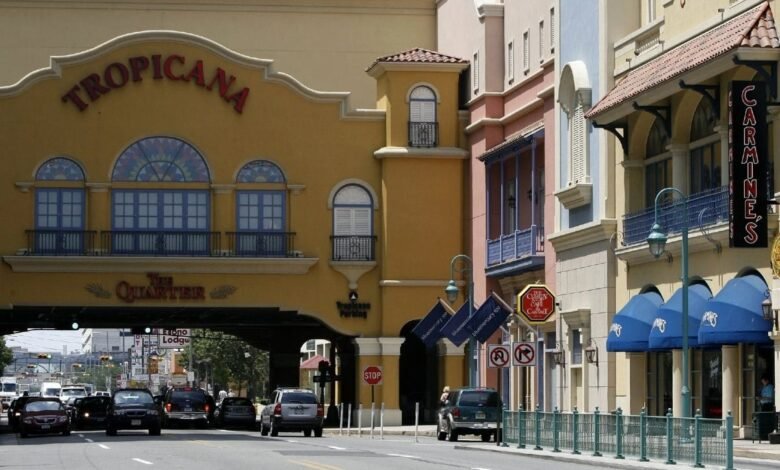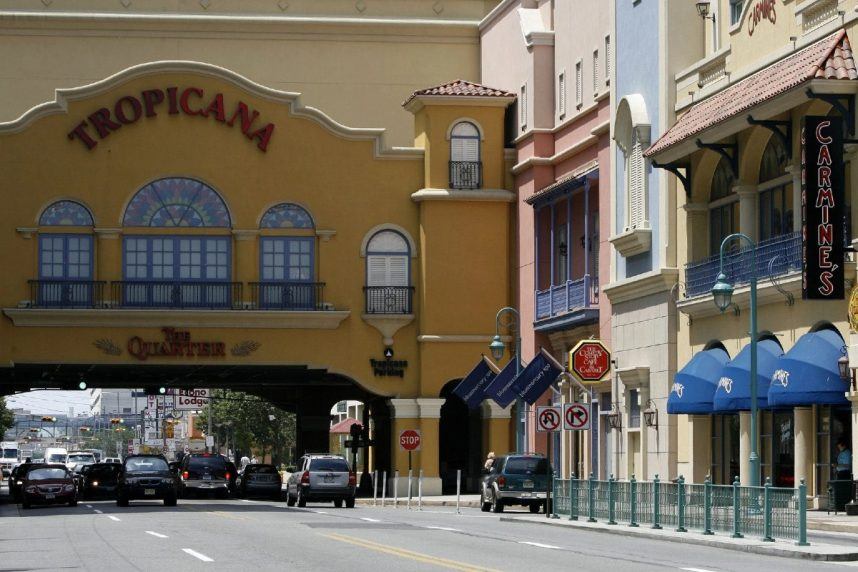Atlantic City Casino Room-Rate Lawsuits Consolidated

Posted on: January 19, 2024, 12:24h.
Last updated on: January 19, 2024, 12:36h.
Multiple Atlantic City casinos facing lawsuits over room-rate conspirations will see the litigation consolidated in New Jersey’s federal court.

Federal Judge Karen Williams in New Jersey’s US District Court this week agreed to combine the three proposed class-action lawsuits filed last year against the casinos.
The defendants are Caesars Entertainment, MGM Resorts, and Hard Rock International. The three lawsuits involve MGM’s Borgata and Caesars’ three Atlantic City properties, Caesars, Harrah’s, and Tropicana. The litigation additionally includes Bally’s for when it was operated by Caesars. The company sold Bally’s Atlantic City in 2020 for $25 million to a Rhode Island company that subsequently rebranded to Bally’s Corp.
Hard Rock owns and operates its namesake Boardwalk property. The six casinos named as defendants in the lawsuits are accused of conspiring together to increase their hotel room rates despite dwindling occupancy demand.
Third Party Named as Defendant
Along with the casinos, the proposed class-action lawsuits, which are now combined into one consolidated matter recaptioned as “Cornish-Adebiyi, et al., v. Caesars Entertainment, Inc., et al.,” name a third-party booking vendor as a defendant. The plaintiffs allege that the Cendyn Group of Boca Raton, Fla., duped consumers by helping the casino hotels increase rates in violation of federal law.
The litigation argues that Cendyn’s pricing algorithm platform service “Rainforest,” which the named casinos use, violates the Sherman Act, an antitrust law that prescribes the rule of free competition. Congress’ first antitrust law passed in 1890, Sherman outlaws “every contract, combination, or conspiracy in restraint of trade” and any “monopolization, attempted monopolization, or conspiracy or combination to monopolize.”
Plaintiffs point to data supplied by the New Jersey Division of Gaming Enforcement (DGE) that shows the named casino defendants have greatly elevated their nightly rates in recent years despite occupancy rates not warranting such increases. They argue that with demand remaining relatively flat or even declining, room rates shouldn’t have increased as they have.
Casino-Hotel Defendants’ knowing use of a shared pricing algorithm platform that Defendant Cendyn Group sells and promotes has enabled and facilitated an anticompetitive scheme that has caused Plaintiffs and class members to pay supra-competitive prices for guest rooms they have rented directly from Casino-Hotel Defendants or their co-conspirators from no later than June 28, 2018, to the present,” the litigation contends.
Instead of casino hotels battling for customers by offering lower room rates, in what Cendyn labels a “race to the bottom,” the company’s pricing algorithm sets rates across the participating resorts.
The scheme, the proposed class alleges, violates a truly free competitive market environment. The case is set to continue with a scheduling teleconference on February 21.
Hotel Data
The New Jersey DGE revealed in its 2018 casino industry report that the resorts’ 15,104 hotel rooms were occupied 80.7% of the time on an average nightly rate of $137. In 2019, those same hotel rooms were occupied at a rate of 78.9%, but the average nightly rate increased to $142.
After the pandemic, Atlantic City demanded an average nightly rate of almost $173 despite the rooms being occupied just 67.6% of the available nights. Occupancy rates rebounded to 73.4% in 2022, but rates further increased to $178.





